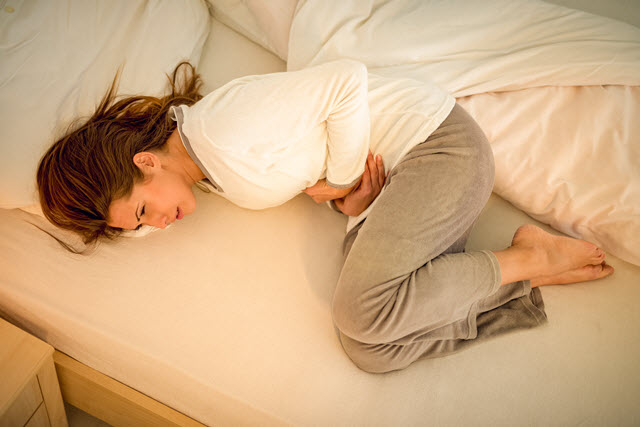PMS and Insomnia
Monthly Hormone Changes and Sleep Disturbance
While some of the biggest hormone changes occur during menopause, subtler and possibly more long-lasting sleep disruptions are inspired by PMS symptoms. Think about it: you begin menstruating in your teens and typically experience a menstrual cycle once per month possibly through age 45 and even longer. Usually around age 35 to 40 you begin experiencing symptoms related to peri-menopause, but your monthly periods may still run fairly on course.
Characteristics of PMS Insomnia

Many women report insomnia symptoms associated with their monthly cycle. These can be associated with any of the insomnia patterns: sleep onset, or the inability to fall asleep at the beginning of the night; middle insomnia, or waking in the night with difficulties returning to sleep; or late/terminal insomnia, or waking very early in the morning, pre-dawn, and never returning to sleep.
PMS-induced insomnia is associated with menstrual cycle hormone changes—including serotonin, progesterone, and estrogen-- and can be accompanied by night sweats, hot flashes, and vivid dreams or nightmares.
PMS symptoms that can cause insomnia:
- Bloating
- Cramps
- Frequent urination
- Irritability
- Breast tenderness
- Heavy menses
The exact processes of PMS are still unmapped, but severity and expanse of symptoms can be affected by your daily behaviors as well as family history.
Symptoms of PMS Insomnia
Insomnia is a set of symptoms most often secondary to some other condition. In this case insomnia symptoms are an outgrowth of PMS symptoms, which can compound all of them. But combined with PMS the symptoms of insomnia include:
- Extreme fatique—most women are hyper tired before and during their menstrual cycles, but insomnia may worsen it due to sleep disruptions. On an Epstein Sleepiness Scale you could fall asleep sitting in a car in traffic.
- Heightened irritability due to exhaustion increases natural PMS moodiness.
- Lack of concentration, which lowers your productivity.
Women experience PMS to varying degrees. How well you tolerate your monthly menstrual cycle may well be determined by your family history. If your mother reported severe PMS it’s possible you’ll experience the same. On the other hand some women have mild symptoms. The more intense your PMS the more intense the insomnia and sleep deprivation each month.
Treatment for PMS Insomnia
Treat the PMS and you usually vastly improve the insomnia, or at least relieve the sleep disturbances. Most mild to moderate cases of PMS can be managed with lifestyle choices, including adherence to an exercise schedule even during your cycle, improving your diet and cutting back hard on caffeine particularly during your menstrual cycle.
